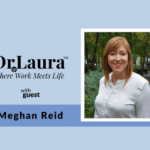In the first part of my blog Stop Should-ing On Yourself & Your Career, I explained what shoulds are and how they can negatively impact you and your career. If you haven’t read Part One yet, read it here. If you have read it and you realize that you are should-ing on yourself continue reading! I’ll share a four-step plan that can help you learn how to stop should-ing.
Step 1: Identify Your Shoulds
- To change any thought or behaviour, the first step is to increase your awareness of it. In this case, start by brainstorming your shoulds and create a list of all the instances you say, “I should…” or “I shouldn’t…”.
-
- Example: the most common should I hear at Canada Career Counselling is “I should pursue law/math/science/business”. I will refer to this should as an example of how to apply each step throughout this blog.
-
Step 2: Identify the Origin and Impact of your Shoulds
- Shoulds come from external influences. Without identifying the origin of your shoulds, these external influences may continue to impact you. For each should you have listed, ask yourself where it came from. Family? Friends? Colleagues? Social Media? TV/Movies?
-
- Example: when I have asked clients to identify the origin of the message “I should pursue law” a common response I hear is “My parents told me I should go into law because it is practical and high paying.”
-
- Once you identify the source of a should, consider how this could be impacting you. Shoulds can be adaptive when they motivate desired behavior, however, they can be maladaptive when they become rigid rules and demands.
-
- Example: Adaptively, believing you should go to law school may increase your effort in school. However, maladaptively, it may influence you to pursue a degree you are not actually interested in, which can contribute to fatigue, stress and a lack of satisfaction.
-
Step 3: Gain Self-Awareness and Learn the Difference Between Wants and Shoulds.
- Identify and accept your true interests and what is truly of value to you by asking yourself questions such as: “Do I actually want to do this, or do I just feel like I should?” Doing so will help you determine which career(s) are a good fit for you and increase authenticity, fulfillment and genuine motivation in your career. Career Counsellors can help you identify this!
-
- Example: Do you actually want to go into law, or do you think you should go into law? Are there other areas that are more exciting to you such as marketing, social science, computer science etc.?
-
Step 4: Live According to Your Wants, Not Your Shoulds.
- If your shoulds do not align with your wants: STOP should-ing, STOP people pleasing and START living according to what you want. It takes a lot of energy and provides little reward to work toward something you don’t actually want to do, solely to appease others or gain their approval. FYI: this will likely take time and effort and does not happen overnight.
-
- Example: If you are not interested in law and it doesn’t fit your values, stop should-ing yourself into this career path and consider what topics/causes/industries are interesting and important to you.
-
- Once you are clearer about your wants, work on changing your self-talk. Try to catch yourself should-ing and challenge those shoulds. Try and speak about what you want to do as oppose to what you should Changing your self talk from “I should…” to “I want…” creates greater motivation and desire to take action.
-
- Example: If you identify that marketing is a better fit for you than law, remind yourself that you do not want to pursue a career you’re not interested in, and that, while being a lawyer is a great career choice for some people, it likely wouldn’t be a good choice for you. Focus on shifting your self talk from “I should pursue law” to “I want to pursue marketing”.
-





